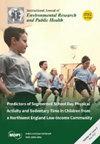利用认知访谈开发美国印第安人和阿拉斯加原住民成人对遗传学和生物标本看法的评估调查
3区 综合性期刊
Q1 Medicine
International Journal of Environmental Research and Public Health
Pub Date : 2024-08-29
DOI:10.3390/ijerph21091144
引用次数: 0
摘要
认知访谈过程是验证调查工具表面效度和增强项目解释信心的一种方法,也是让社区参与研究过程的一种方法。经过培训的美国印第安人和阿拉斯加原住民(AIAN)访谈员在三个 AIAN 社区进行了回顾性认知访谈,以评估 131 个调查项目的项目质量,该调查项目用于测量 AIAN 对遗传学和生物标本的知识和态度。认知访谈过程用于评估文化一致性,在制定调查问卷以评估公众对遗传学的知识和态度时,考虑调查说明、项目和回答时使用的思维过程,以及调查项目的语言偏好。内容分析法用于分析访谈数据。调查说明、项目和量表没有产生认知困难。参与者表示不熟悉用于描述遗传学和生物标本的术语。有几次,参与者在调查中的书面回答与访谈中的口头回答不一致。最终确定了在亚裔美国人社区使用的 52 个调查项目。认知访谈是一种资源密集型工作;然而,在调查开发过程中忽视社区参与,会导致对亚裔美国人等文化多样性人群做出不恰当的解释。本文章由计算机程序翻译,如有差异,请以英文原文为准。
Use of Cognitive Interviews in the Development of a Survey Assessing American Indian and Alaska Native Adult Perspectives on Genetics and Biological Specimens
The cognitive interview process is a method to validate a survey instrument’s face validity and enhance confidence in item interpretation, as well as a method to engage communities in the research process. Trained American Indian and Alaska Native (AIAN) interviewers conducted retrospective cognitive interviews at three AIAN communities to assess the item quality of a 131-item survey item that measures AIAN knowledge and attitudes on genetics and biological specimens. A cognitive interview process was used to assess cultural consonance, thought processes used when considering survey instructions, items and responses, and language preference of survey items in the development of a survey to assess public knowledge and attitudes on genetics. Content analysis was used to analyze interview data. Survey instructions, items and scales generated no cognitive difficulties. The participants noted being unfamiliar with terminology used to describe genetic and biological specimens. In several cases, the participants’ written response in the survey and verbal response in the interview did not align. A resultant 52-item survey for use in AIAN communities was finalized. Cognitive interviewing is resource-intensive; however, ignoring community engagement during survey development results in inappropriate interpretations about culturally diverse populations such as AIAN peoples.
求助全文
通过发布文献求助,成功后即可免费获取论文全文。
去求助
来源期刊

International Journal of Environmental Research and Public Health
Medicine-Public Health, Environmental and Occupational Health
CiteScore
7.30
自引率
0.00%
发文量
14422
审稿时长
1 months
期刊介绍:
International Journal of Environmental Research and Public Health (IJERPH) (ISSN 1660-4601) is a peer-reviewed scientific journal that publishes original articles, critical reviews, research notes, and short communications in the interdisciplinary area of environmental health sciences and public health. It links several scientific disciplines including biology, biochemistry, biotechnology, cellular and molecular biology, chemistry, computer science, ecology, engineering, epidemiology, genetics, immunology, microbiology, oncology, pathology, pharmacology, and toxicology, in an integrated fashion, to address critical issues related to environmental quality and public health. Therefore, IJERPH focuses on the publication of scientific and technical information on the impacts of natural phenomena and anthropogenic factors on the quality of our environment, the interrelationships between environmental health and the quality of life, as well as the socio-cultural, political, economic, and legal considerations related to environmental stewardship and public health.
The 2018 IJERPH Outstanding Reviewer Award has been launched! This award acknowledge those who have generously dedicated their time to review manuscripts submitted to IJERPH. See full details at http://www.mdpi.com/journal/ijerph/awards.
 求助内容:
求助内容: 应助结果提醒方式:
应助结果提醒方式:


